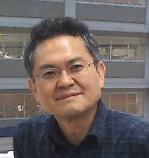"Methods of Integrative Mathematical Oncology – Bone Metabolism" Prof. Takashi Suzuki

Date
Location
Description
Abstract
Mathematical oncology stands on a fusion of mathematics and biology, associated with experimental science, theoretical science, simulation science, and data science. Realistic mathematic and rigorous biology emerge from this fusion as a benefit. First, I give an overview, examining the methods of mathematical modeling used there. Then a special topic is selected, that is, bone metabolism in accordance with DAF, the differentiation annihilation factor. This topic is hot, involved by not so deep, but new mathematics which leads to detailed interpretation, prediction, and evaluation to biological phenomena, expected to be a standard method in mathematical oncology. Actually, DAF is suspected from biological data, but its multiple functions are detected by mathematical modeling. Thus, dynamical equilibrium and its break down are illustrated in details by this theory based model, with the help of the theory of dynamical systems and numerical simulations. We shall reach the following conclusions: Increase of DAF is to be observed with extremely high rate when the dynamical equilibrium breaks down when the malignancy proceeds on time, to induce osteoporosis. Sudden over-expression of DAF is also a sign of the break down. Inhibition of DAF is efficient to recover dynamical equilibrium. DAF should be identified with knock down technique and RANKL injection. Other frontiers are also illustrated.
Biography
Prof. Takashi SUZUKI
PhD (mathematics), July, 1981, University of Tokyo
Professor, Osaka University
Fields
Analysis, applied analysis, and mathematical science
Nonlinear partial differential equations, numerical methods, inverse problems
Mathematical modeling in cell biology
Selected Publications (Monograph)
- T. Suzuki, Mean Field Theories and Dual Variation – Mathematical Structures of the Mesoscopic Model, 2nd edition, Paris, 2015
- T. Suzuki and H. Ohtsuka, Elliptic Equations and Near From Equilibria Dynamics, I. Recursive Hamiltonian, II. Potentials of Self-organization (in Japanese), Asakura Shoten, 2015
- T. Suzuki, Introduction to Mathematical Medicine (in Japanese), Kyoritsu Shuppan, 2015
- T. Suzuki and T. Senba, Applied Analysis – Mathematical Methods in Natural Science, 2nd edition, Imperial College Press, London, 2011
- T. Suzuki, Free Energy and Self-Interacting Particles, Birkhauser, Boston, 2005
- H. Fujita, N. Saito, and T. Suzuki, Operator Theory and Numerical Methods, Elsevier Science Publishers, Amsterdam, 2001
Subscribe to the OIST Calendar: Right-click to download, then open in your calendar application.



